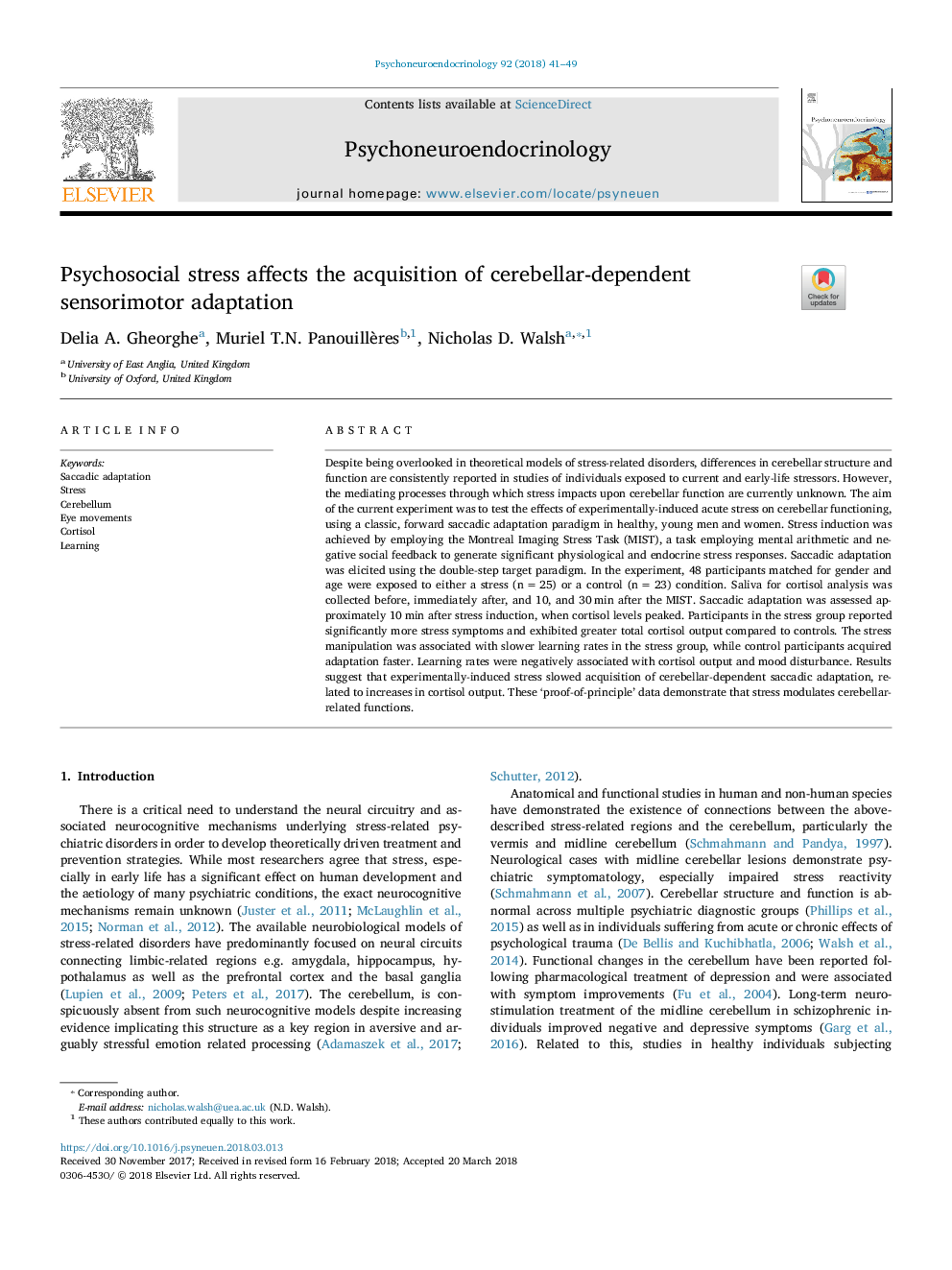ترجمه فارسی عنوان مقاله
استرس روحی-اجتماعی به ایجاد سازگاری سنسوری حرکت وابسته به مخچه اثر می گذارد
عنوان انگلیسی
Psychosocial stress affects the acquisition of cerebellar-dependent sensorimotor adaptation
| کد مقاله | سال انتشار | تعداد صفحات مقاله انگلیسی |
|---|---|---|
| 127828 | 2018 | 9 صفحه PDF |
منبع

Publisher : Elsevier - Science Direct (الزویر - ساینس دایرکت)
Journal : Psychoneuroendocrinology, Volume 92, June 2018, Pages 41-49

